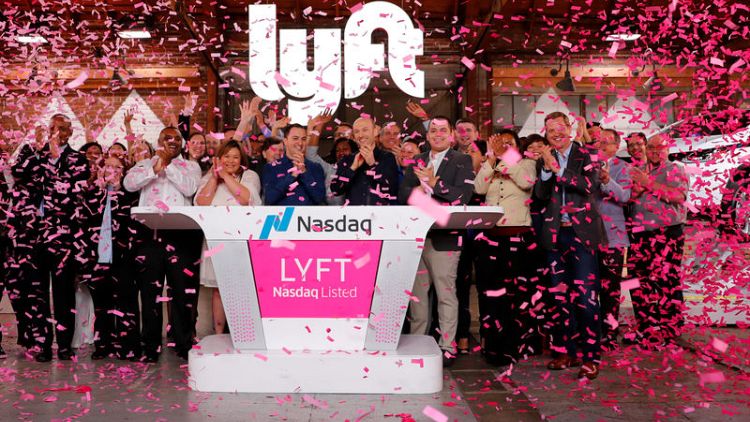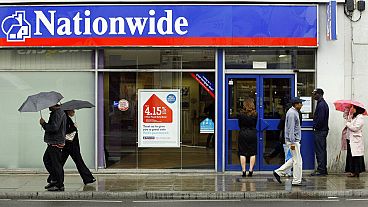By Heather Somerville and Joshua Franklin
LOS ANGELES/NEW YORK (Reuters) - Lyft Inc's shares opened up more than 20 percent in their market debut on Friday, giving the ride hailing startup a market value of more than $27 billion (£20.8 billion), amid strong investor demand that bodes well for larger rival Uber Technologies Inc.
Lyft's IPO, which is this year's biggest thus far, sets the stage for other Silicon Valley unicorns seeking to debut in the stock market this year, including Pinterest Inc, Postmates Inc and Slack Technologies Inc.
The success of the IPO came despite Lyft's steep loses, criticism of its dual-class share structure and some concerns over its strategy for autonomous driving, for fear of missing out on the company's strong revenue growth.
"There's money that wants to be invested into tech. This is a new area and people are definitely interested in exploring it," said Catherine McCarthy, an Allianz research analyst.
On Thursday, Lyft priced 32.5 million shares, slightly more that it was offering originally, at $72, the top of its already elevated $70-$72 per share target range, raising $2.34 billion in its initial public offering.
The stock opened at $87.24. By the afternoon, the stock had pared gains to trade up 11 percent at $80.20.
Lyft's offering ended up 20 times oversubscribed, similar to other high-profile IPOs, with more than 500 orders from institutional investors such as mutual funds placed, according to people familiar with the matter.
"Unless you're a closet indexer, you are sitting looking at this as potential alpha for your returns," said David Ethridge, U.S. IPO services leader at PwC.
Despite the optimism, there are some concerns that these tech IPOs may be coming at the peak of the market, when the benchmark S&P 500 Index has risen more than 200 percent since 2008.
LOSS-MAKING 'UNICORNS'
Lyft posted a loss of $911 million in 2018 versus $688 million in 2017, despite revenue doubling in 2018 to $2.16 billion. The company has not laid out a timeline for when it will turn a profit.
As a result, the IPO of Lyft and other loss-making unicorns represent a predicament for investors sitting on the fence.
"Every portfolio manager is going to have to make a decision in the next 12-18 months about these new IPOs. It's a growing part of the market," said JMP Securities President Mark Lehmann.
Uber, which is also loss-making and whose investment bankers have said could be valued at as much as $120 billion, is planning to launch its IPO in April, sources have said.
Lyft, as of December, had 39-percent market share in the United States, up from 35 percent early last year.
Lyft Chairman Sean Aggarwal said the company's co-founders Logan Green and John Zimmer worked during the road show to make investors comfortable with Lyft's dual-class share structure, which has faced criticism from some investors and corporate governance advocates.
Although it is common among highly-valued tech companies, public market investors still balk at this structure, which gives founders more votes per share and outsized control of the company.
CELEBRATING AT AN AUTO DEALERSHIP
Instead of celebrating the first day of trading at the Nasdaq in New York, Lyft opted to mark the occasion at a defunct auto dealership in downtown Los Angeles.
Lyft's staff, with their family and friends, and Los Angeles Mayor Eric Garcetti gathered before dawn for the kick-off.
Lyft recently bought the facility to turn it into a driver services centre, the first of several it plans to open across the United States in the coming months, where drivers can get discounted services like help with taxes or charging electric vehicles.
Garcetti said in his remarks that the old warehouse symbolizes "a transformation of our economy."
He pointed out that Green, who is Lyft's CEO, is a native of Los Angeles, adding that "some good did come out of Los Angeles traffic."
(Reporting by Heather Somerville in Los Angeles and Joshua Franklin in New York; Additional reporting by Chuck Mikolajczak in New York; Editing by Nick Zieminski)



